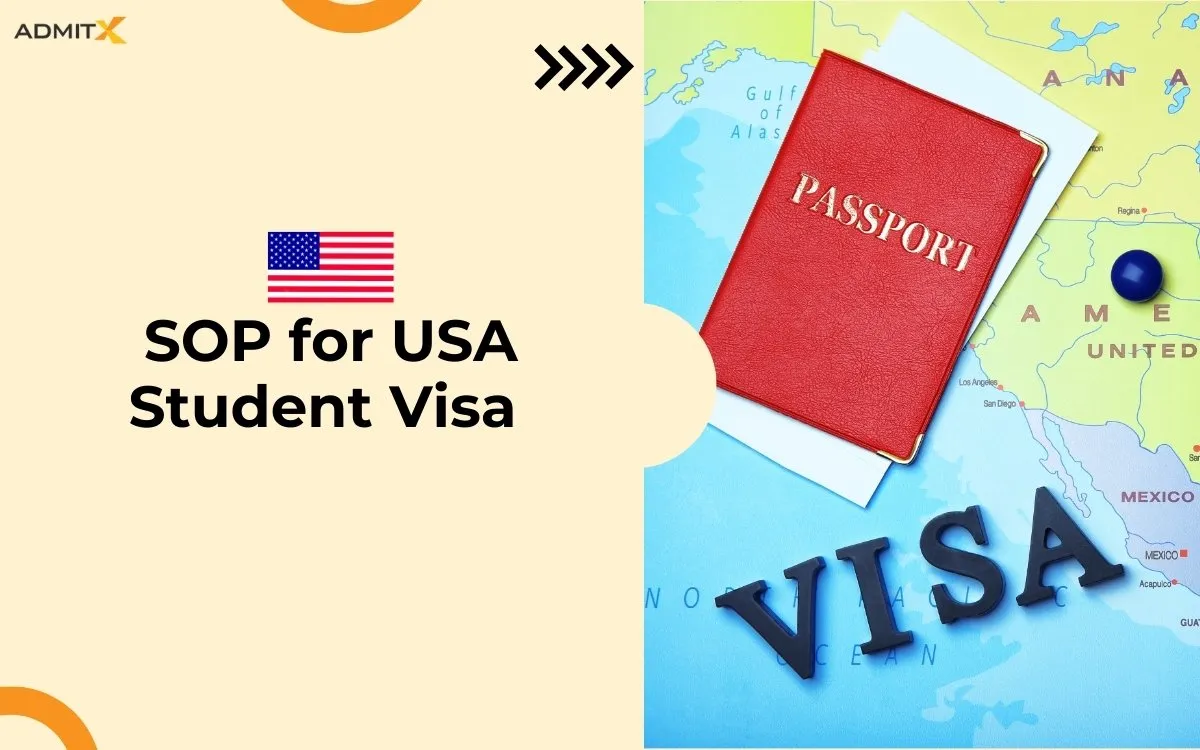
Masters in Finance in Canada : Top Universities, Jobs & More
Canada is an excellent choice for Indian students interested in obtaining a master’s in finance because of its robust and diverse economy.
It is one of the best countries to continue your education because of its top-notch universities, excellent educational system, and friendly culture.
Those interested in building their careers in corporate finance, financial planning, risk management, banking, or risk assessment should consider a Masters in Finance in Canada.
- Pursuing Masters in Finance in Canada: Opening the Market of Opportunities
- Reasons to Study Master’s in Finance in Canada
- Top Universities for Master's in Finance
- Curriculum of Masters in Finance in Ireland
- Top Masters in Finance Programs
- Eligibility Criteria for Masters in Finance
- Documents Checklist
- Study Intakes in Canada
- Application Process for MS in Finance
- Finance Jobs in Canada
- Conclusion
- FAQs
Pursuing Masters in Finance in Canada: Opening the Market of Opportunities
Canada is one of the most sought-after study destinations for the Indian students. It is well known for providing quality education in the fields of Computer Science, Natural Sciences, Law, Business & Management, Accounting & Finance etc. Among these subject choices, pursuing Finance courses in Canada is most popular among Indian students.
Master’s in Finance in Canada is a comprehensive and specialised course offered to impart systematic knowledge of markets, finances and analytical techniques.
Pursuing an MS in Finance allows students to develop their excellence in various domains like corporate finance, investment banking, risk management, financial planning etc.
Reasons to Study Master’s in Finance in Canada
There are several reasons to pursue an MS in Finance in Canada for Indian students, like the academic excellence of Canadian universities, the multiethnic environment, global exposure to the emerging jobs market, etc.
Canada is one of the most developed countries, providing abundant options for growth to students worldwide. Let’s briefly discuss these reasons before moving further in the blog:
Academic Excellence
The education system in Canada is entirely independent of the federal government’s control. Canadian provinces and territories have complete control over it, as they can formulate their open education policy, curriculum, syllabus, etc.
For this reason, Canadian territories invest huge capital every year to maintain and develop academic structures at their universities.
2024 QS will include 31 Canadian universities in their global ranking list based on their teaching and research excellence. Also, Times Higher Education has included 30 institutes in their international ranking list, which is enough to showcase the credibility and reliability of these institutes that attract millions of students annually.
Opportunities for Leadership
One of the most significant advantages a student might get while pursuing an MS in Finance in Canada is to grab the opportunity to become a leader! Of course, not a political leader necessarily but a leader of vision and dreams who can also impact society.
After enrolling in finance courses in Canada, one begins to develop and improve one’s personality as Canadian universities provide diverse chances to students outside academic interests through workshops, training, internships, sports events, etc., which sharpen their skills.
When one embraces those changes, they are fully empowered enough to lead others.
Diverse Career Paths
Most Canadian universities have tie-ups with industries and corporations that provide students with different career options, such as internships, part-time jobs, and even full-time employment.
This also helps students to polish the skills required to pursue a career after a Master’s in Finance in Canada.
Top Universities for Master’s in Finance
Canada is home to world-renowned universities known for providing expertise through MS in Finance by providing a variety of courses. Here, we have tabulated the best finance universities in Canada for Indian students:
| University | QS World University Ranking 2024 | Tuition Fees (Per Year) |
|---|---|---|
| University of Toronto | 15 | CA $5,200 |
| University of British Columbia | 26 | CA $8,777 |
| McGill University | 48 | CA $32,000 |
| Queen's University at Kingston | 101-150 | CA $25,000 |
| University of Alberta | 101-150 | CA $6,500 |
| Université de Montréal | 101-150 | CA $20,500 |
| Western University | 101-150 | CA $20,000 |
| York University | 101-150 | CA $30,000 |
| University of Waterloo | 151-200 | CA $13,000 |
| Simon Fraser University | 200-251 | CA $20,000 |
Also read – Master’s in Canada
Curriculum of Masters in Finance in Ireland
MS in Finance in Canada covers a wide range of topics taught in the classroom and through hands-on experience in the workplace. Furthermore, it gives them a complete understanding of the basic principles and methods.
Here is a list of Canada’s most important parts of the MS Finance syllabus
- Financial Analytics
- Management in Financial Strategies
- Financial Strategic Management
- Financial planning
- Financial risk management
- Financial planning services
- Data Analysis
- Equity Analysis
- Investments
- Marketing Foundations
Top Masters in Finance Programs
The following is the list of most popular specializations in MS in Finance offered by Canadian universities. The duration of a Masters in Finance course is 1-2 years, depending on the course curriculum and academic modules:
- MBA in Finance
- MS in Financial Management
- MS in Financial Planning
- Master of Finance
- Master of Financial Economics
- Master of Management in Finance
Eligibility Criteria for Masters in Finance
To get into Master’s degree programmes in Canada, you need to have completed at least 16 years of schooling. Most college programmes in India, on the other hand, only last three years, which is too short by Canadian standards.
However, not many schools in Canada will accept people with a three-year bachelor’s degree and 15 years of schooling. The eligibility criteria for seeking admission to Finance courses in Canada are:
Direct Admission
Indian students who have completed their undergraduate degree programs, which cover certain classes like business finance, financial theory, financial economics, etc, are eligible to be admitted to a master’s in finance in Canada by applying on the university website.
Indirect Admission
If an Indian student has completed a 3-year degree course like B.Com/BA, they have to either undergo the WES Evaluation process to validate their credentials earned in Indian boards of education or pursue a bridge course such as a Diploma in Statistical Science to gain the expertise in statistics required for an MS in Finance.
Time duration: The WES Evaluation process takes 7-10 days to complete, so it is advisable to apply for WES ECA accordingly.
Fees: INR 13,500/ (CA$163)
Also read – Canada PR : Visa and Other Processes
Documents Checklist
- Previous Academic transcripts
- A minimum GPA score of 3.0 out of 4.0 or 70-80% is required.
- GMAT Scorecard: Some universities may prefer it, although it is not required. A minimum score of 600-650 is required (cut-off may depend on the university)
- Some universities may also require a GRE scorecard
- English language proficiency scorecard: TOEFL (97-100), IELTS (6.0-7.0), PTE (65-70) is required
- 2-3 Letter of Recommendation: It gives admissions committees important information about applicants’ potential, skills, and character.
- 1-2 Statement of Purpose: Your SOP should include the purpose and motivations that drive you to choose Canada as your career destination.
- CV/Resume
- Work Experience certificate (if applicable)
- Proof of Funds
- Health Insurance
- Passport
- Photographs
Study Intakes in Canada
| Type of Intake | Application Cycle | Commencement of Semester | Description |
|---|---|---|---|
| Fall Intake | November 2023-January 2024 | August/September 2024 | Scholarships and study aids available for all programs |
| Winter Intake | September 2024-December 2024 | January 2025 | Least scholarships and study aids |
| Spring Intake | Novemer-February | May 2024 | Scholarship and study aids are available only for selected programs |
Application Process for MS in Finance
You need to follow the following steps to file an application process for Masters in Finance course in Canadian universities:
- Find at least 8–10 universities that offer the program you want and list them briefly.
- Go to their websites, gather information about them, and then compare the details, such as fees and career advantages, they offer.
- Visit the university’s website and fill out the application form.
- Upload scanned copies of all the necessary documents.
- If there are any, pay the application fees.
- Check your emails for information from the university about possible interview dates and times.
- Walk through the interview.
- You will be given a conditional offer letter if you do well in the interview.
- Make sure you’re accepted and save your spot at the university. Usually, this means giving a deposit you can’t get back and agreeing to the terms and conditions.
Also read – Life of Indian Students in Canada
Finance Jobs in Canada
After completing the MS in Finance in Canada, international students have many opportunities from top employers like RBC Royal Bank, Deloitte, Sun Life, Capital One Bank, Mastercard, ATB Financial, Citi Group, KPMG, etc.
The average salary after completing Finance courses in Canada is CAD 60,000-95,000, which may vary depending on the employer and years of experience. Below, we have tabulated the best high-paying Finance jobs in Canada and their annual salary.
| Jobs | Average Salary (Per Year) |
|---|---|
| Economist | $91,900-100,000 |
| Chief Financial Officer | $70,900-100,000 |
| Chief Complaince Officer | $90,900-120,000 |
| Investment Banker | $69,900-85,000 |
| Budget Analyst | $70,900-95,000 |
| Statistician | $58,900-70,000 |
| Market Analyst | $60,900-75,000 |
| Financial Analyst | $70,900-96,000 |
| Risk Manager | $85,900-95,000 |
Conclusion
To sum up, Canada is considered one of the best countries in the world for pursuing courses like accounting and finance, as it provides a vibrant atmosphere and the required ecosystem for all students.
Canada is home to the world’s best universities because of its liberal education policy. QS has indexed 31 Canadian universities in the 2024 global ranking, which showcases the quality of education that these institutions provide.
Pursuing an MS in Finance in Canada is always a good option for students who are looking forward to building their careers in banking and finance. Universities in Canada provide diverse courses and career options to international students who are not only focusing on the quality of their lives but also solving real-world problems.
FAQs
What is the cost of living in Canada?
The cost of living generally depends on the region you live in, the level of luxury you have chosen, and other local factors. However, Canada’s average cost of living is CAD 7,000-18,000 per year.
Do universities offer scholarships to pursue finance courses in Canada?
Yes, Canadian universities offer various kinds of scholarships to international students depending on their eligibility and needs.
Is GRE required for MS in Finance in Canada?
Most Canadian universities require GRE scores for various business, management, and technical courses. In addition, a high GRE score for a master’s in Canada will allow students to apply for multiple financial aid, loans, scholarships, and facilities.
If you are an aspirant looking to study at your dream university, book an appointment with AdmitX today and start your applications early to avail yourself of all the benefits.








